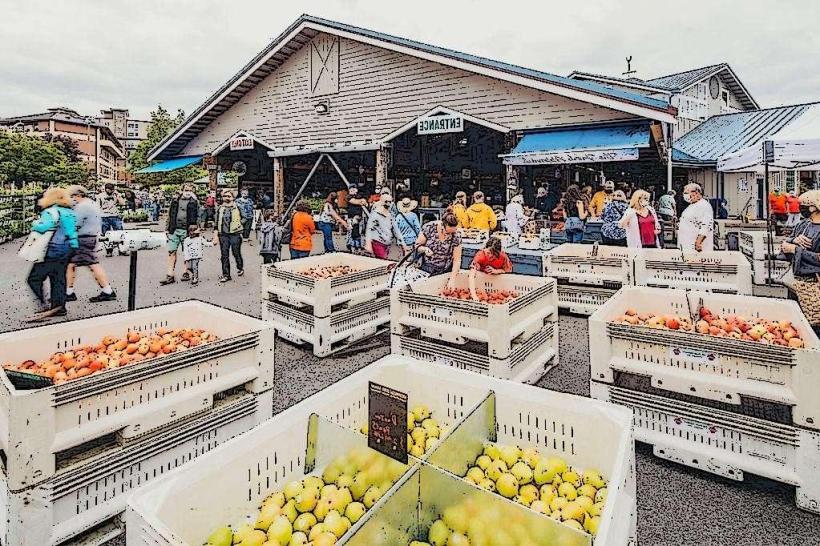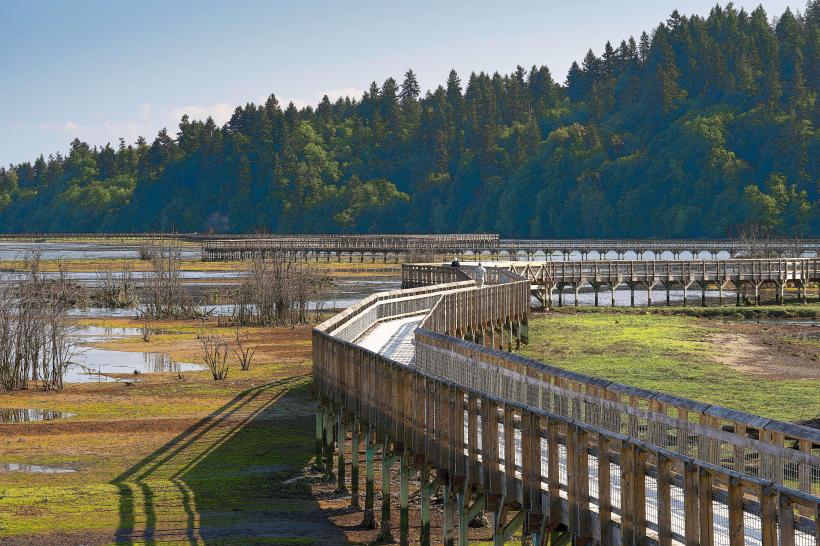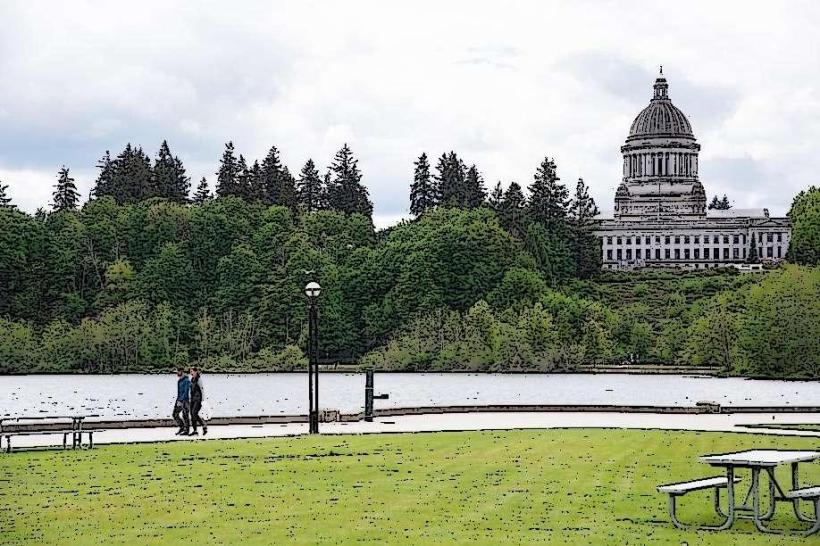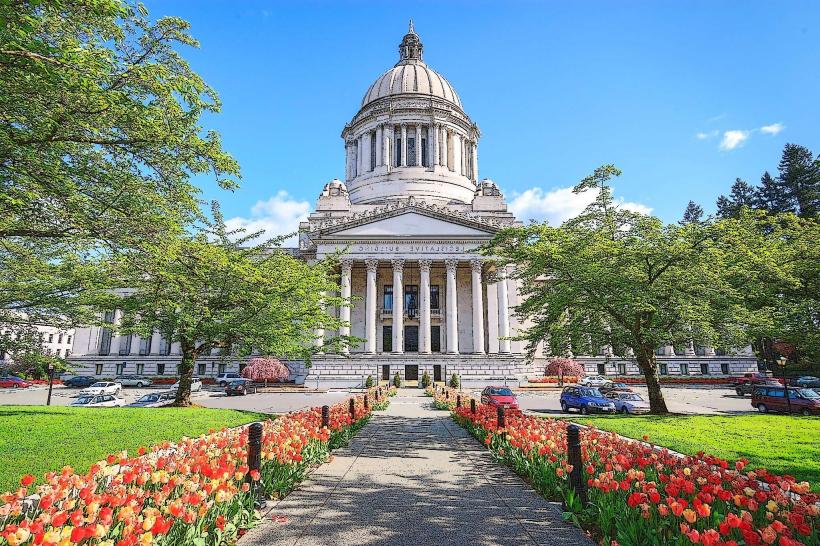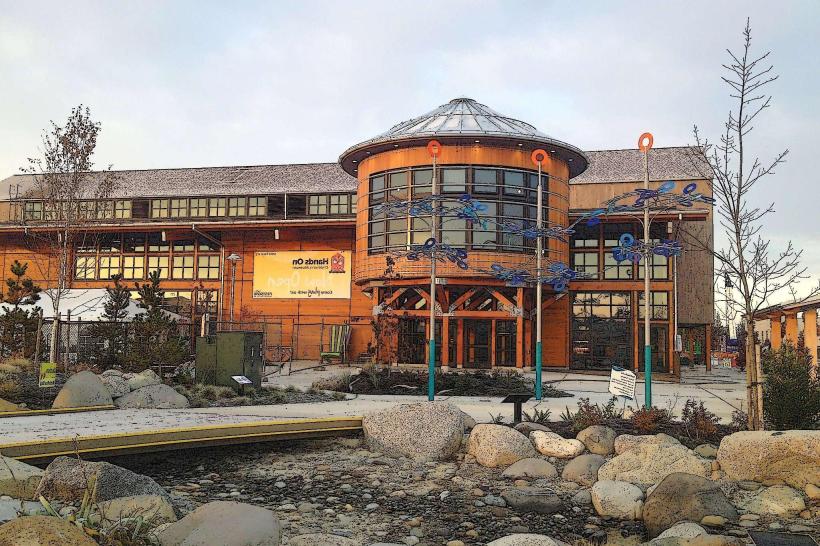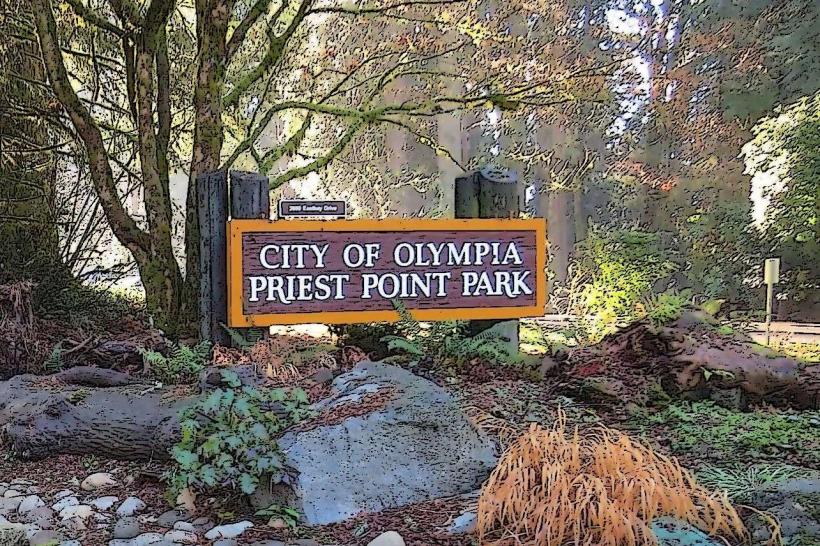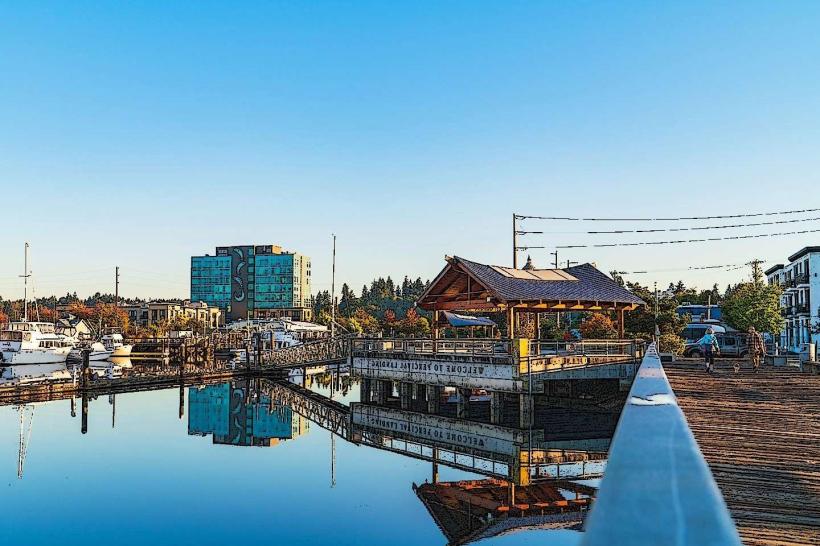Information
Landmark: Capitol TheaterCity: Olympia
Country: USA Washington
Continent: North America
Capitol Theater, Olympia, USA Washington, North America
Capitol Theater – Comprehensive Detailed Overview
1. Historical Background
The Capitol Theater, located at 206 5th Avenue SE in downtown Olympia, Washington, is a landmark historic theater that opened its doors in 1924. It was designed by Joseph Wohleb, a prominent local architect whose work shaped much of Olympia’s early 20th-century architecture. The theater was originally conceived as a grand movie palace, showcasing the golden era of silent films and later the early talkies.
The design included luxurious and elaborate architectural details such as:
Terra cotta façade featuring intricate ornamental details.
Stained glass windows representing the five muses of the arts - a symbolic nod to the theater’s cultural mission.
Marble flooring and elaborate plasterwork that added elegance and charm.
A Smith 2 manual 9 ranks organ installed for silent movie accompaniment, which was a significant feature of theaters during that era.
Throughout its history, the theater has endured and adapted through various phases:
The 1920s to 1950s: It was a prime venue for first-run Hollywood films, vaudeville acts, and community events.
In 2001, an earthquake damaged the ceiling plaster, prompting an extensive restoration to preserve the historic interior.
In 2008, the original marquee, which had been removed long ago, was faithfully recreated based on historic photographs, restoring the iconic street presence of the theater.
2. Architecture and Design Features
Exterior: The façade’s terra cotta details remain a defining characteristic, capturing the style of early 20th-century movie palaces.
Interior: Rich plaster moldings, detailed murals, and the original decorative motifs were carefully restored or recreated during renovations.
Seating: The theater contains around 600 seats, with a combination of main floor and balcony seating, preserving the intimate yet grand atmosphere of classic theaters.
Accessibility: Modern updates ensure wheelchair access and accessible restrooms while maintaining historical integrity.
3. Cultural and Community Role
Since 1986, the Capitol Theater has been operated by the Olympia Film Society (OFS), a nonprofit dedicated to promoting independent, foreign, and underrepresented films. OFS began leasing the theater in 1990 and became the full owner in 2008.
Under OFS stewardship, the theater serves as:
A vibrant hub for independent cinema, screening a diverse range of films from classic retrospectives to contemporary independent productions.
A venue for Q&A sessions, film festivals, and thematic film series.
A space for live performances, including music concerts, theatrical performances, and spoken word events.
An art exhibition space, where the mezzanine and lobby often feature rotating displays from local artists.
The host of annual community events such as the “Duck the Malls” holiday arts and crafts fair, which showcases local artisans and creators.
4. Programming and Events
The Capitol Theater offers a dynamic schedule that includes:
Regular film screenings emphasizing independent, foreign, cult classic, and documentary films.
Special events such as director talks, film workshops, and community discussions.
Live music concerts spanning genres from folk and jazz to rock and funk.
Festivals and curated film series, often with thematic focuses (e.g., environmental films, LGBTQ+ cinema).
Youth and educational programs designed to engage students and emerging filmmakers.
Recent notable events have included performances by acclaimed artists like Neko Case and music festivals such as the Olympia Funk Festival, highlighting the theater’s role as a premier live music venue in addition to its cinematic offerings.
5. Visitor Experience and Amenities
Location: Conveniently situated in downtown Olympia, making it easily accessible by public transportation, walking, or car.
Accessibility: Fully wheelchair accessible with seating accommodations and accessible restrooms on the main floor.
Ticketing: Tickets can be purchased online or at the box office, with membership options providing discounted pricing and exclusive event access.
Concessions: The theater offers a selection of refreshments, including classic movie snacks and beverages.
Atmosphere: Visitors often comment on the nostalgic ambiance that combines historical charm with the vibrancy of contemporary cultural programming.
6. Significance and Legacy
The Capitol Theater remains a cherished cultural landmark in Olympia for several reasons:
Architectural Heritage: One of the best-preserved movie palaces in the Pacific Northwest, showcasing early 20th-century design and craftsmanship.
Cultural Vitality: Acts as a cornerstone for independent arts and culture, sustaining a community-based approach to cinema and live performance.
Community Engagement: The theater fosters local artistic talent and provides a space for cultural exchange, education, and entertainment.
Historic Preservation: Its careful restoration and ongoing maintenance reflect a community commitment to preserving Olympia’s history while adapting to modern needs.
Summary
The Capitol Theater is far more than just a movie house; it is a living cultural institution that embodies Olympia’s artistic spirit and historic charm. Its unique blend of architectural beauty, diverse programming, and community-centered mission ensures that it continues to serve as a dynamic venue for film, music, and art for both locals and visitors. The theater’s preservation and continued relevance highlight the powerful role historic venues can play in enriching cultural life in modern cities.

